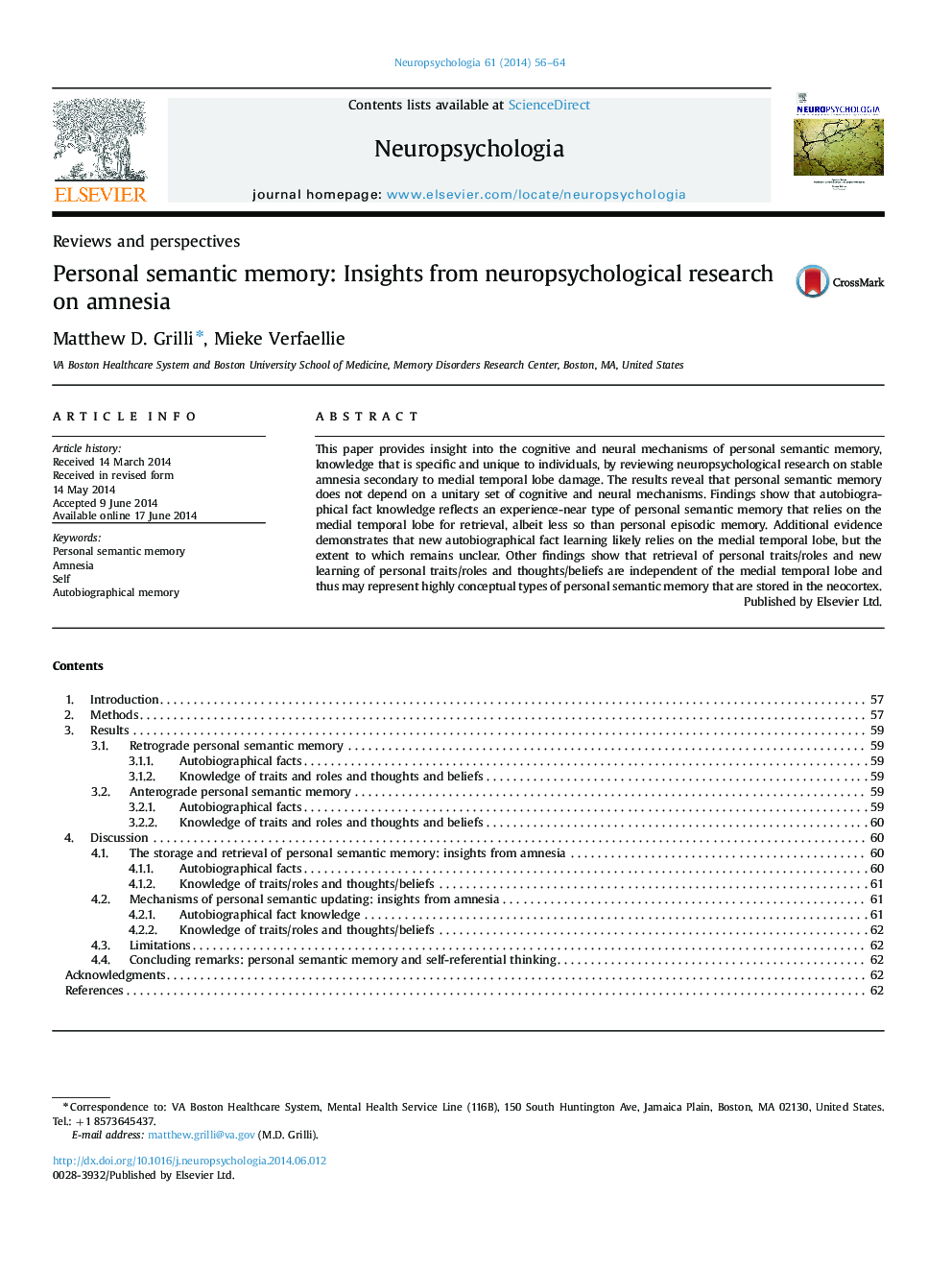| Article ID | Journal | Published Year | Pages | File Type |
|---|---|---|---|---|
| 7321047 | Neuropsychologia | 2014 | 9 Pages |
Abstract
This paper provides insight into the cognitive and neural mechanisms of personal semantic memory, knowledge that is specific and unique to individuals, by reviewing neuropsychological research on stable amnesia secondary to medial temporal lobe damage. The results reveal that personal semantic memory does not depend on a unitary set of cognitive and neural mechanisms. Findings show that autobiographical fact knowledge reflects an experience-near type of personal semantic memory that relies on the medial temporal lobe for retrieval, albeit less so than personal episodic memory. Additional evidence demonstrates that new autobiographical fact learning likely relies on the medial temporal lobe, but the extent to which remains unclear. Other findings show that retrieval of personal traits/roles and new learning of personal traits/roles and thoughts/beliefs are independent of the medial temporal lobe and thus may represent highly conceptual types of personal semantic memory that are stored in the neocortex.
Keywords
Related Topics
Life Sciences
Neuroscience
Behavioral Neuroscience
Authors
Matthew D. Grilli, Mieke Verfaellie,
